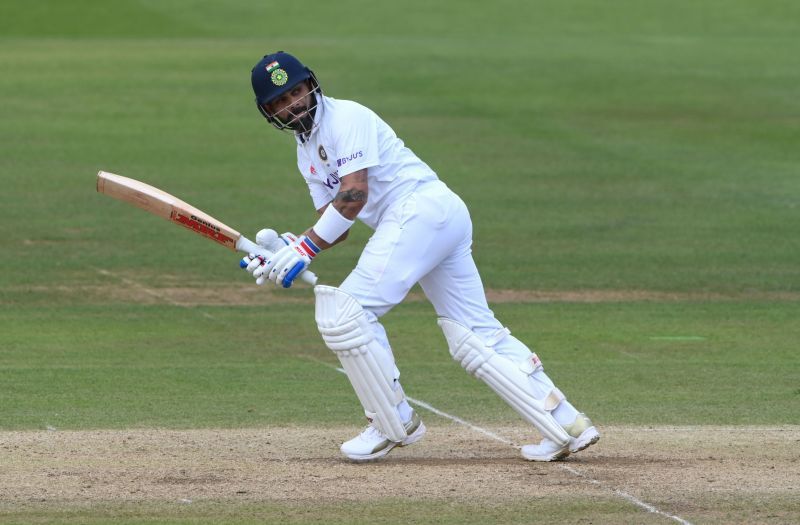
Virat Kohli has turned into a colossus in the 13 years since his debut, but he still has a few areas to work on

August 18, 2008 was the first time fans got a glimpse of Virat Kohli in international cricket. It was far from an auspicious debut. On the contrary, Kohli’s first match coincided with a disastrous batting effort from India.
They were bowled out for 146 in 46 overs in the first ODI of the five-match series against Sri Lanka in Dambulla. Those were the days when Ajantha Mendis’ (3/21) mystery spin made Indian batters look embarrassingly inefficient.
On a personal note, Kohli could only contribute 12. Asked to open the batting with fellow Delhi cricketer Gautam Gambhir (0), the future Indian captain was trapped lbw for 12 by Nuwan Kulasekara.
Kohli got half a stride forward to one that nipped back and was caught in front of the stumps. It was the kind of dismissal that would go on to become rather common in Kohli’s career.
Obviously, Kohli was too good to be demolished after one failure. He came back with a vengeance and has since gone on to achieve numbers that most batters in international cricket can only dream of.
Kohli is the only batter to average over 50 in all three formats of the game and has a whopping 70 international centuries to his name.
But has Virat Kohli lived up to his true potential?
His numbers may suggest so, but there are facets to Kohli’s decorated career which, if not addressed before retirement, will keep hanging as question marks over his legacy.
Cometh the hour, Kohli never comes
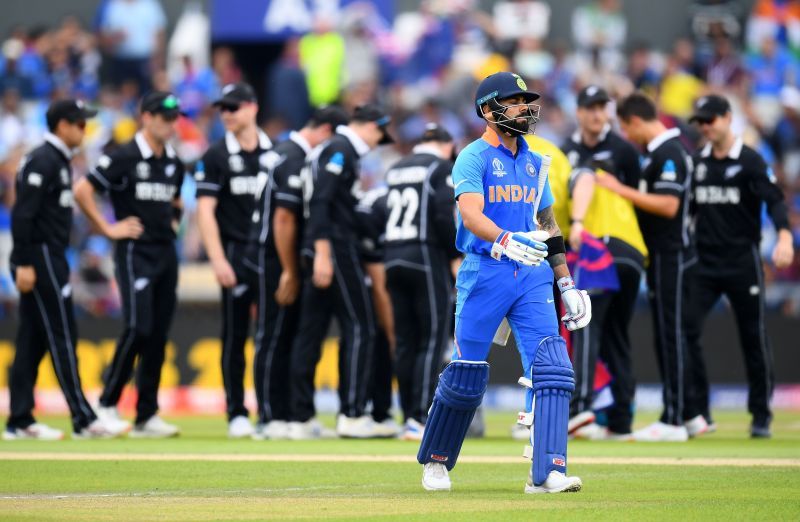
Cometh the hour, cometh the man, the great saying goes. However, while Kohli has scored runs all over the world in the toughest of conditions, he is yet to play that one standout innings in a big game to cement is legacy.
His two major contemporaries - Steve Smith and Kane Williamson - have done so. And that too, with Kohli in the opposition camp.
While Smith scored a hundred in the 2015 World Cup semi-final in Sydney that knocked India out, Williamson scored a crucial 67 in the 2019 World Cup semis in Manchester. In a shocking coincidence, Kohli’s scores in both these crunch knockout matches read the same - 1.
The Indian captain had a great chance to make amends in the World Test Championship (WTC) final against New Zealand but once again failed, only to see Williamson guide his side to title triumph.
There is something about crunch ICC matches that seems to trouble Kohli. And the sample size isn’t small enough to ignore this anomaly in his grand career. At the end of the day, it’s how many key clashes you have won for the team that matters.
No line of control to Kohli’s aggression
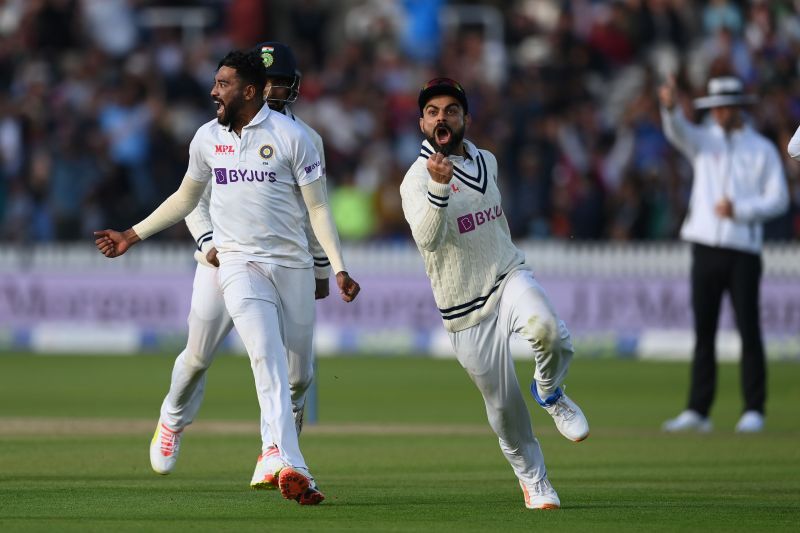
Coming as it does against the backdrop of India’s famous win at Lord’s, this may sound pathetically out of place. But it’s a pertinent point to raise nonetheless. Isn’t Kohli going over the top with his aggressive celebrations?
One needs to be combative, no doubt. At the same time, what is the need to react to every wicket as if India have just lifted the World Cup? For the record, he hasn’t led India to one yet.
One wonders if Kohli watches his own replays of how he responds to dismissals. Most of the times it seems like he is in the boxing ring instead of a cricket ground.
Be aggressive, without doubt. Have a go at the opposition, give it back to them. But also be aware of where to draw the line. Kohli must remember that he is a looked up to as a role model by the younger generation.
And, what they watch is what they learn.
A dangerous precedent has also been set in the form of Mohammed Siraj, who has graduated from Kohli’s school of aggression. He was absolutely brilliant, no doubt, at Lord’s. But here is a cricketer playing in his seventh Test, telling the media that he puts a finger on his lips to celebrate every dismissal to shut critics. No scope for criticism then? No room for improvement?
Everything seems fine when a team is winning but Kohli and Siraj must remember that these very antics will be questioned when things don’t go India’s way.
Kohli’s pre-match talk: A defence mechanism against defeat?
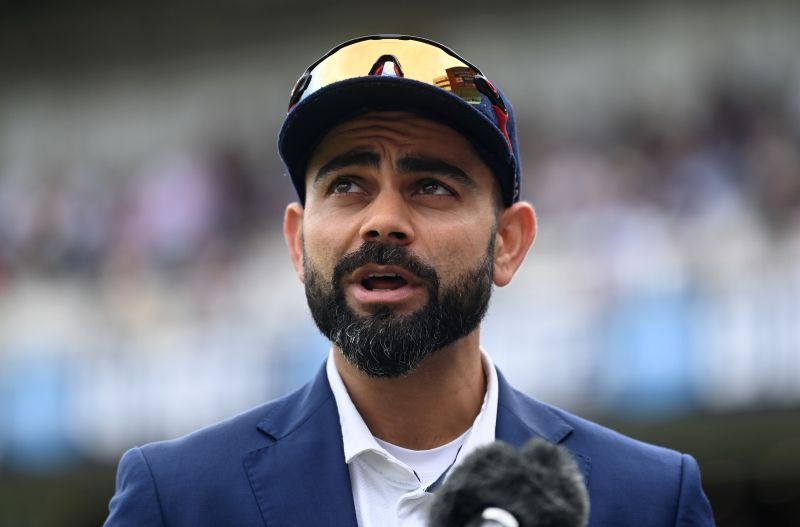
If you observe closely, there is a pattern to Kohli’s pre-game interactions with the press. It always has the "doesn’t matter if we win or lose" angle. Prior to the WTC final against New Zealand, Kohli proclaimed that one game over five days wouldn’t define India as a Test team. Half the battle was already lost before the final against New Zealand had begun.
The greatness of every team or sportsperson is defined on the basis of how he performs in the contest that matters the most. If this result doesn’t matter, they why even play in the first place? It is like an Olympic athlete stating that “medals don’t matter, I am only here to give my best”. Purpose of occasion is what creates great sporting spectacles - be it Dhoni’s World Cup-winning six or Neeraj Chopra’s gold medal at the Tokyo Olympics.
Even prior to the ongoing series against England, Kohli had proclaimed to Dinesh Karthik in an interview that winning a series on English soil would be like any series win for him. Incidentally, while speaking to Karthik recently, Rohit Sharma admitted that England is the most challenging place to play cricket. While Kohli may be a great cricketer, it is difficult to comprehend his mindset.
In the same interview he said that, “even if we ‘lose’ a Test match, I want us to go for the win.” The Indian captain also said that team culture and process is more important to him than wins and losses. Undoubtedly, these things matter a lot in sport. At the end of the day though, history will judge Kohli’s team only by the number of wins they achieved and the significance of those triumphs. Performance under intense pressure on the big occasion is what separated Australia from South Africa when the two sides were at their peak.
Kohli’s current slump: Time to get worried?
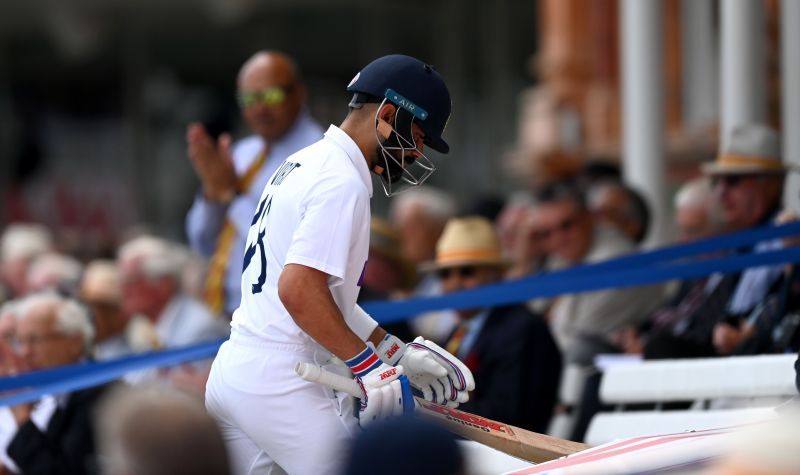
While a lot of question marks have been raised on Cheteshwar Pujara and Ajinkya Rahane’s form, Kohli’s Test numbers over the last few months have been equally poor. Of course, he has displayed a lot more consistency than the other two over the years. But carbon copy dismissals against England are a cause for concern. Kohli will soon turn 33 and although he is the fittest cricketer around, a few more failures and the clock will start ticking for him as well.
As mentioned earlier, when a team wins the weaknesses get dwarfed. However, one bad loss (often one bad session in India’s case) and the uncomfortable questions will start rearing their heads again. Having played international cricket for 13 years, Kohli will know this better than anyone else in the Indian team.
When that time comes, it would be refreshing to see him admit "yes, there’s a problem and we are looking to set it right" rather than offering the usual nonchalant "we don’t care about critics" attitude. Response to criticism is also a defining aspect of a sportsperson’s legacy. This is one area where Kohli has a long way to go.